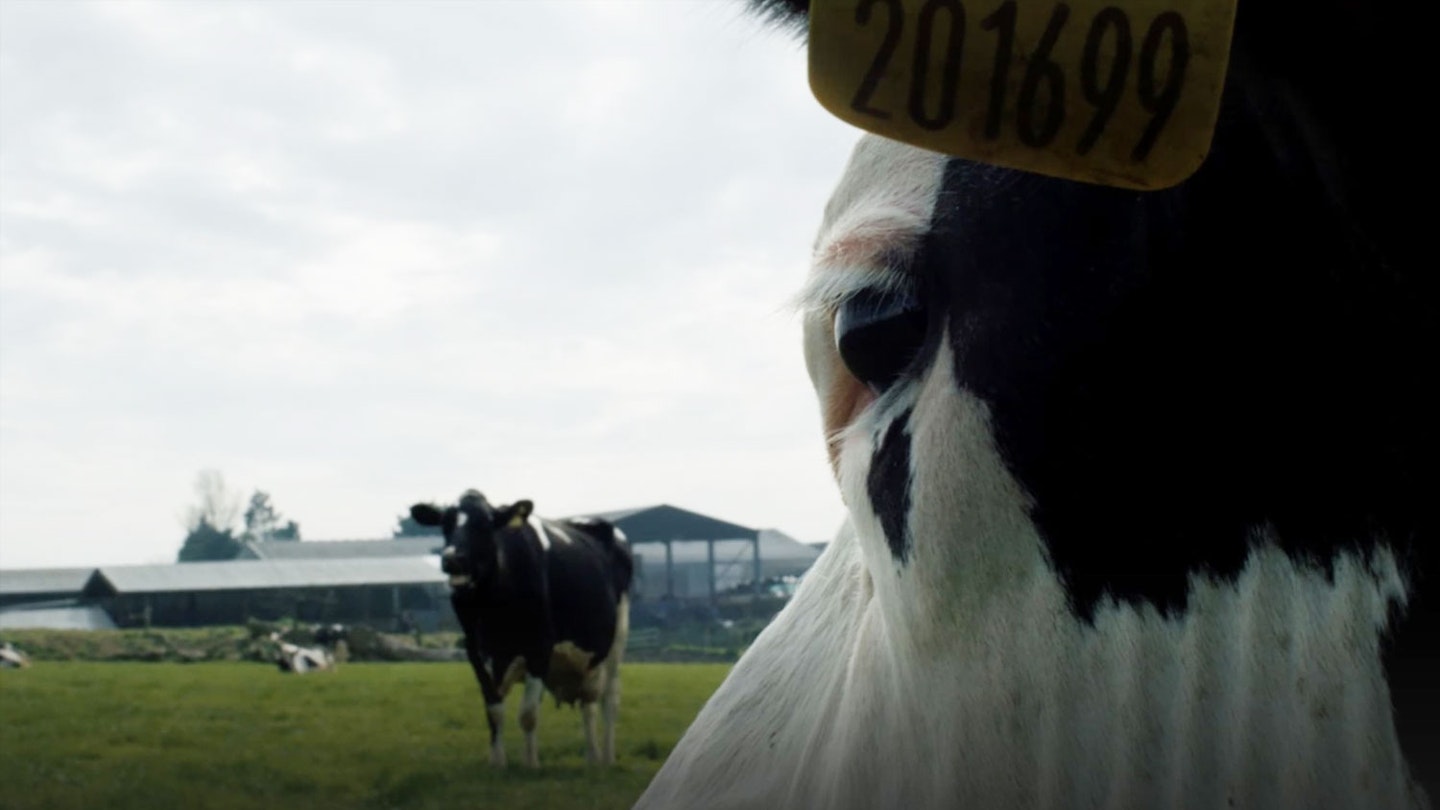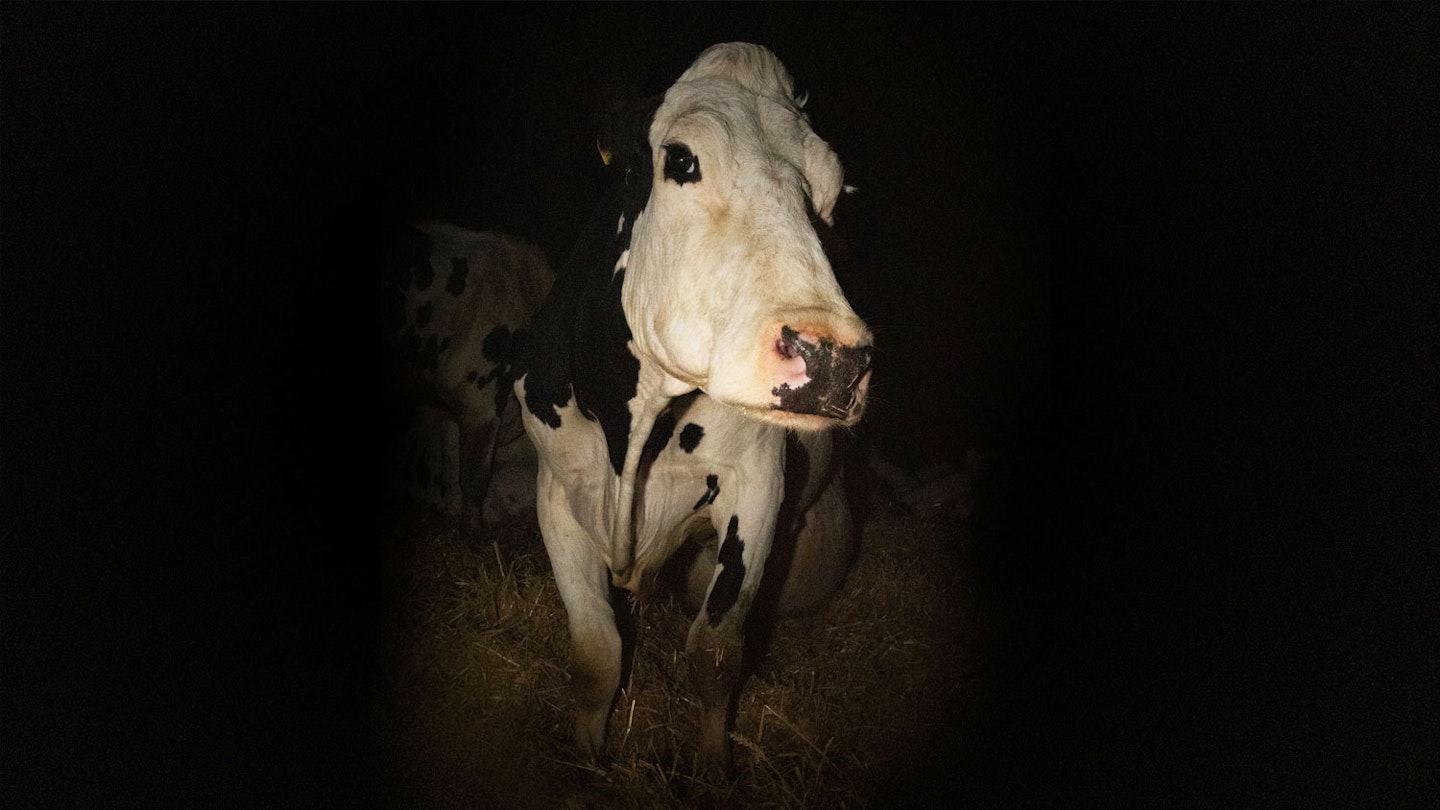A loosely formed documentary about a milk cow is not the obvious follow-up to Andrea Arnold’s sweltering, Midwestern coming-of-age odyssey American Honey. Or Fish Tank, her seminal 2009 teen drama set on an East London estate. Yet both spotlighted two young women’s survival in spite of the premeditated, challenging conditions that they were born into, and it’s here, in another story about a female surviving a stressful situation, that Cow finds its place.

There is not much beauty to be found in this film. It features fleetingly in a starry night sky that Luma considers from the ground, or while she’s afforded some time to graze fresh grass. But where Arnold’s longstanding collaborator Robbie Ryan bathed her fictional films in sunlight, the cyclical manhandling of her bovine subject is here captured by new cinematographer Magda Kowalczyk at a startlingly close range, with natural light rationed to reflect Luma’s existence.
The director creates a brutal yet mesmeric narrative rhythm through the routine mining of Luma’s body and lingering shots of her face.
The film begins viscerally, with the painful and slippery birth of her latest calf. In the brief time that they will spend together, Luma cleans the mucus from her stumbling offspring, and then they’re permanently separated. A guttural sequence follows, in which Luma calls out longingly for what it can be assumed is not the first time, given the resigned sense of duty that consumes her face and body during the labour.
It’s an ambitious film from Arnold that uses no voice-over or overlaying text to structure Luma’s story. Instead, the director creates a brutal yet mesmeric narrative rhythm through the routine mining of Luma’s body and lingering shots of her face, her black, orb-like eyes staring unblinkingly down the lens. As Luma is the only subject of the film, the argument could be made that this is not a robust commentary on the treatment of cows in the milk and meat industries, no matter how forthright the filmmaker’s agenda is. However, Arnold avoids directly villainising the farm workers and their friendly if formal approach to their work. Instead, she posits an evocative and empathetic question of morality that stops just short of preachy. Onto Luma, you can project as much or as little as you choose.
